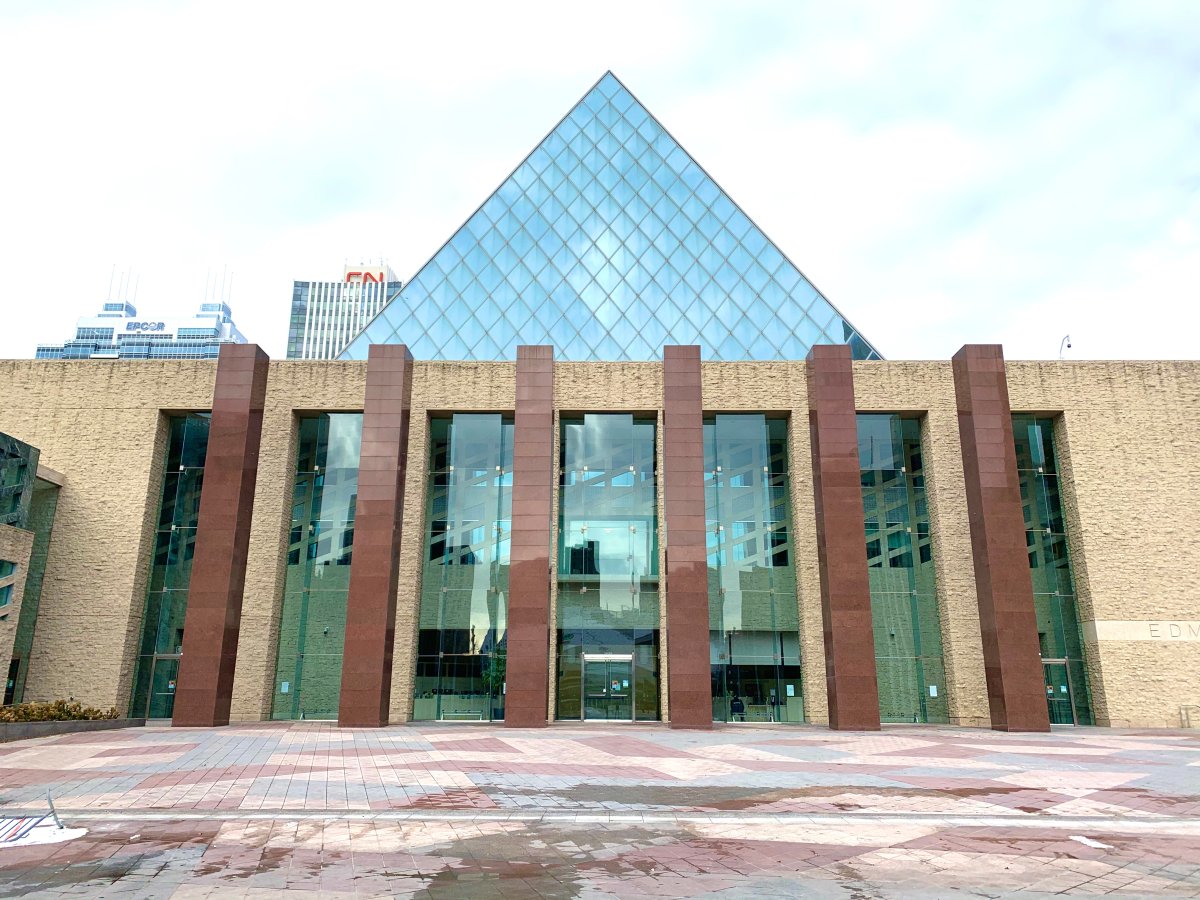The City of Edmonton is forecasting a $73.8-million deficit in the 2023 operating budget, according to a financial update as of the end of June.

The forecast is based on the known deficit of the year’s budget to that point, which is $2.7 million.
The city said the projected variance is due to higher-than-expected salary settlements to police officers as well as lower transit revenue and ATCO gas fees.
The city must pay $43 million this year in back pay to Edmonton police officers after ratifying a new collective bargaining agreement.
Transit fare revenues are projected to be almost $12 million lower than budgeted for this year, the city said. The report said sale volumes for transit fares have increased compared to the same time last year, which the city said is encouraging.
Also contributing to the deficit is a projected $2.5 million to unbudgeted security measures and enhanced cleaning at transit stations, the update said.

The city also provided hygiene resources after an outbreak of Shigella started spreading in Edmonton’s inner city. This is expected to push the deficit about $1.5 million further past the expected budget.
The deficit is partially offset by higher attendance at recreation centres and other city attractions and lower staffing costs due to empty jobs across various departments, the city said.
The variance is equivalent to 2.6 per cent of the overall tax-supported expense budget, the city said.
Mayor Amarjeet Sohi said the city is in a tough financial spot heading into the fall.
“The city is in a tough position and will have to make some tough decisions,” Sohi said.

He added the city will have to dip into the financial stabilization reserve (FSR) at the end of the year.
The FSR is projected to be at $135.7 million at the end of the year, and while that is above the minimum balance, the projected deficit would put the FSR under the minimum balance by about $61 million.
Included in the update are details about what it has cost so far this year for Edmonton to respond to the record-breaking wildfire season throughout the summer.
The city said it incurred $3.1 million to the end of June to support displaced Albertans at evacuee reception centres and to provide firefighting support to affected communities.
Those costs are expected to be recovered through funds from the provincial disaster recovery program, according to the update.




Comments